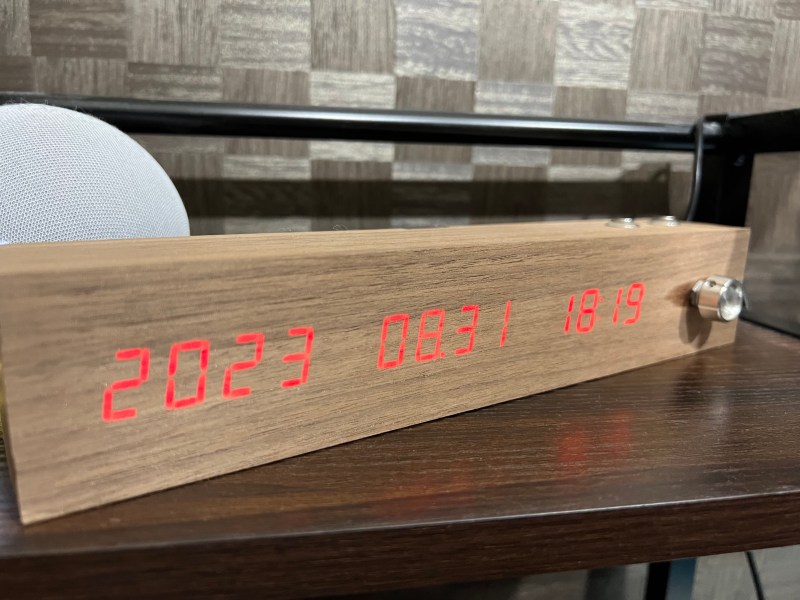Modern life can be stressful. Many of us struggle to balance work, family, exercise, and an ever-growing list of hacking projects, all of which claim our attention during the day. If you sometimes feel that those 24 hours just don’t cut it, you might be in luck: [HIGEDARUMA] has built a clock that can stretch your day by up to five hours.
Sadly, [HIGEDARUMA] hasn’t invented time travel (yet). What his clock does instead is slow down its own pace in the evening to push back the midnight hour. When it finally does reach 12:00 a.m., the clock’s pace is accelerated to ensure it’s back in sync with the rest of the world by six in the morning. It might seem silly, but there is a certain logic to it: [HIGEDARUMA] explains that evenings felt much longer when he was a child and that he would like to try and experience that again. Our sense of time may change over our lifetime, even if the actual passage of time doesn’t.
Timescales aside, the 29-hour clock is a neat piece of work from a hardware point of view. The case is made from 4 mm laser-cut MDF with wood-grain foil on the outside. Inside, there’s an ESP32 to run the show, along with an RTC module and three four-digit seven-segment LED displays. A chunky “volume” knob on the front lets you choose how much you’d like your day to be stretched.
We’ve seen clocks with non-linear dials before, as well as extremely linear ones, but this might be the first one with a non-constant pace. It makes us wonder what the passage of time feels like for those frozen in ice for 46,000 years.



















Nightingale, I hear you trample.
Is this the preparation for the 5-day week?
Great idea! But why use the boring common date. And whilst you are at it please think of new names for the days of the week. And the months of course.
And also, why use the common time format? Invent something new!
I would suggest, just display random gibberish (But not with an update interval of 1sec)
This could be a non-Terran clock. Set it to a Mars Sol… or a Jovian day… or a TOI-1452b day (once it is known) or even P2S-4C3.
I would approve of the working-day hours being shorter and the evening hours being longer.
In college we had a convention of starting the clock (and the day rollover) at 6am, when the rest of the world said it was 6am. But the hours after midnight were still part of the previous day, because we were still awake. So 24h00, 25h00 … 29h59.
Still makes more sense to me, even if everyone else finds it initially confusing.
Hotels sometimes do this for events that run past midnight.
I feel that I look forward to certain times of the night, and I like the premise of this clock. Similar to if you’ve ever watched a digital clock go from 1:59am to 1:00am in November when we roll the clocks back. Eventually you’ll realize that when the clock says midnight it’s actually past your bedtime, or if you look at your phone during this time it will spoil the illusion, but I can see this as helpful.
pretty cool. anyone knows how the LEDs shine through wood grain sticker ?
Kind of similar in concept to: https://www.calcresult.com/temporal/adjustable-clock.html